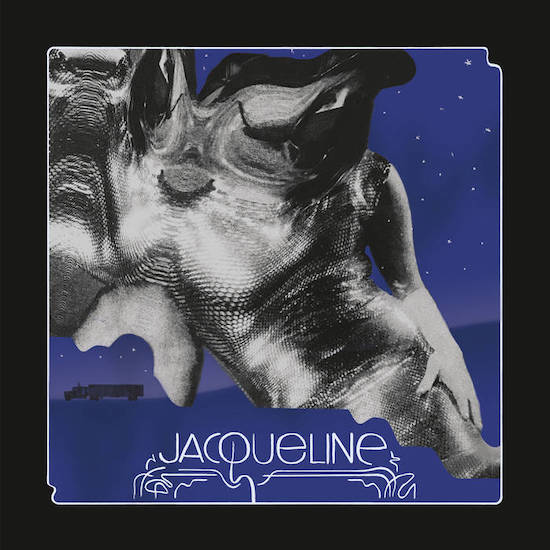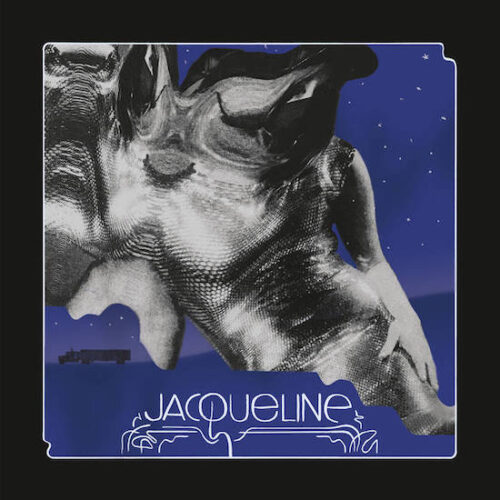It is easy to view Jackie Lynn, for which Haley Fohr of Circuit Des Yeux transforms into her masked, truck-driving alter-ego, as a ‘lighter’, or more accessible expression of her considerable creative talent. Circuit Des Yeux’s five studio LPs, or one-off performances like her 2018 live soundtrack to the 1922 silent film Salomé, are as challenging and uncompromising as they are brilliant, pushing the boundaries of form and genre, whereas Jackie Lynn rests more heavily on straight-up pop convention. Her second album under the pseudonym, Jacqueline, employs a palette of pumping 4/4 beats, swooning strings and one-word choruses.
Opener ‘Casino Queen’, a glistening banger of an electro-pop track sets the tone, ‘Shugar Water’ follows with a thrust of guitar-driven indie rock, the chorus an irresistible ear-worm refrain of the title, while towards the record’s end ‘Diamond Glue’ takes a turn towards woozy G-funk instrumentals and vocoder vocals; this is a long way from Circuit Des Yeux’s grand experimental voyages. Rarely, however, is Jackie Lynn resting on one note pop tropes. There’s a flourish at every turn, a little shimmer of synth, a weird, wonky riff that skews things just a little, or a full-on psychedelic wig-out. And of course, there’s Fohr’s inimitable voice, a bold, deep and resonant thread that ties it all together.
Jacqueline is a record made with a kind of camp swagger, a lightness of touch and a knowing sense of its own melodrama, but that is not to say that it takes itself any less seriously than the most ambitious Circuit Des Yeux opus. In fact, it’s Fohr’s most imaginative work to date, playing with the boundaries between internal and external narratives and blurring the lines between the facts and fictions of Jackie’s life, and her inner and outer worlds. It combines the momentum of a long-haul trucker’s wandering mind, flickering between vivid fantasies and hazy memories, with the hypnotic, relentless repetition of the physical journey itself.
The instrumentals, for which Fohr employs Bitchin Bajas, are able to shift with the appropriate deftness and elegance to match that subtle atmospheric concept. They do not just lurch wildly from indie-pop to G-funk, they employ those genres’ aesthetics and the emotional constants associated with them – the former’s intrinsic mix of angst and anticipation, and the latter’s blissful yet assured sensuality are distilled into their purest form and utilised with immense skill. Towards the end of ‘Short Black Dress’, these brash, Magical Mystery Tour-Beatlesy trumpets are employed for just a minute or so, instantly inferring that particular brand of demented, kaleidoscopic psychedelia. There are other points, meanwhile, where Jacqueline slips into a gorgeous haziness, as on the swooning ‘Dream Street’, allowing itself to be carried into a lovely subconscious drift.
This is a record of infinite different energies, and as a result can be headspinning as it whirls from one to another, but beneath them all there is this deeper, more primal momentum at play – a hypnotic, looping repetition around which those myriad flourishes are wound. ‘Odessa’, the album’s centrepiece, is the best example of this, where that primeval beat rises to the surface in the form of a mighty, seven-minute kosmische pump, remaining constant and irresistible as Jackie Lynn and her band perform a matchless, almighty psychedelic wig-out.



